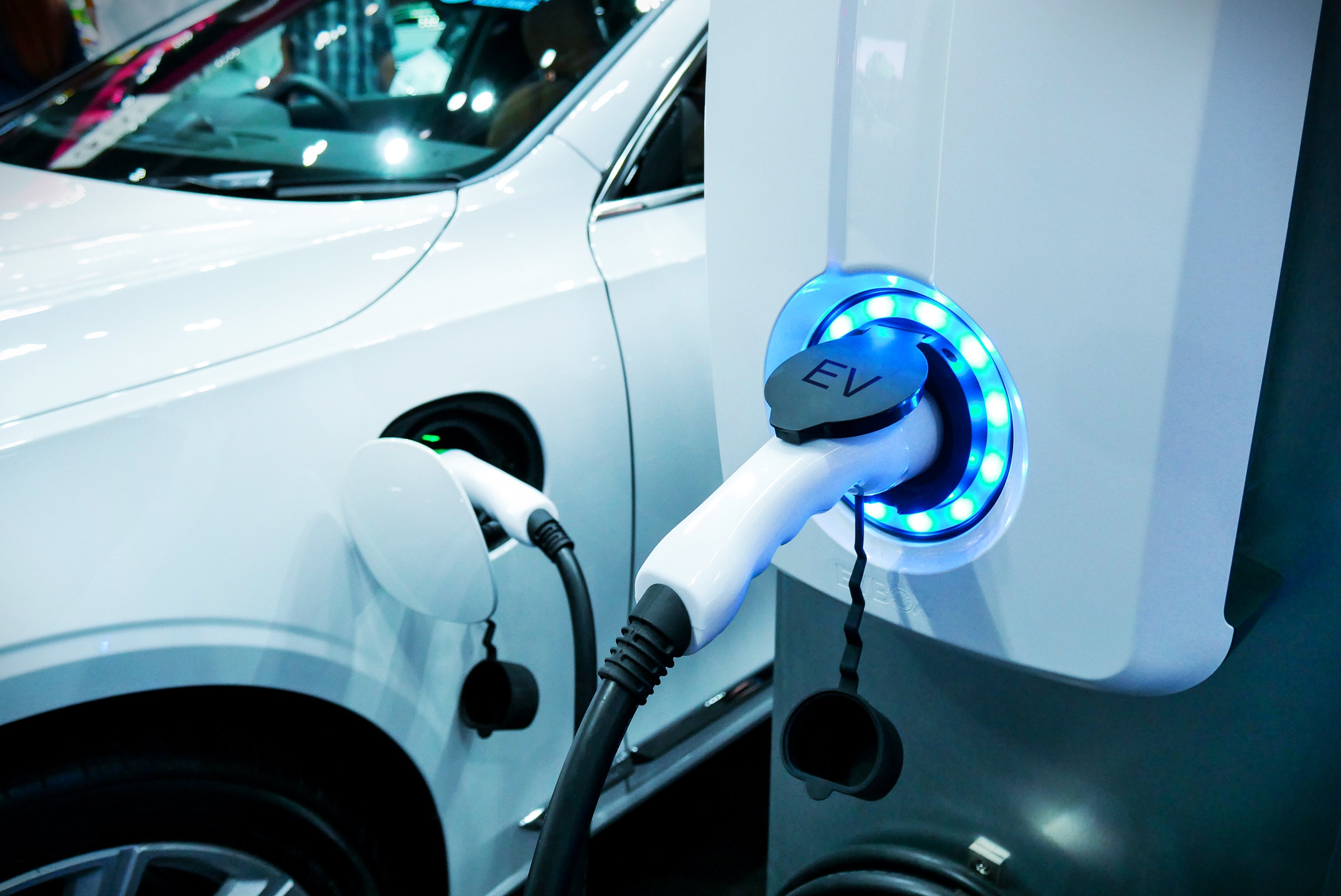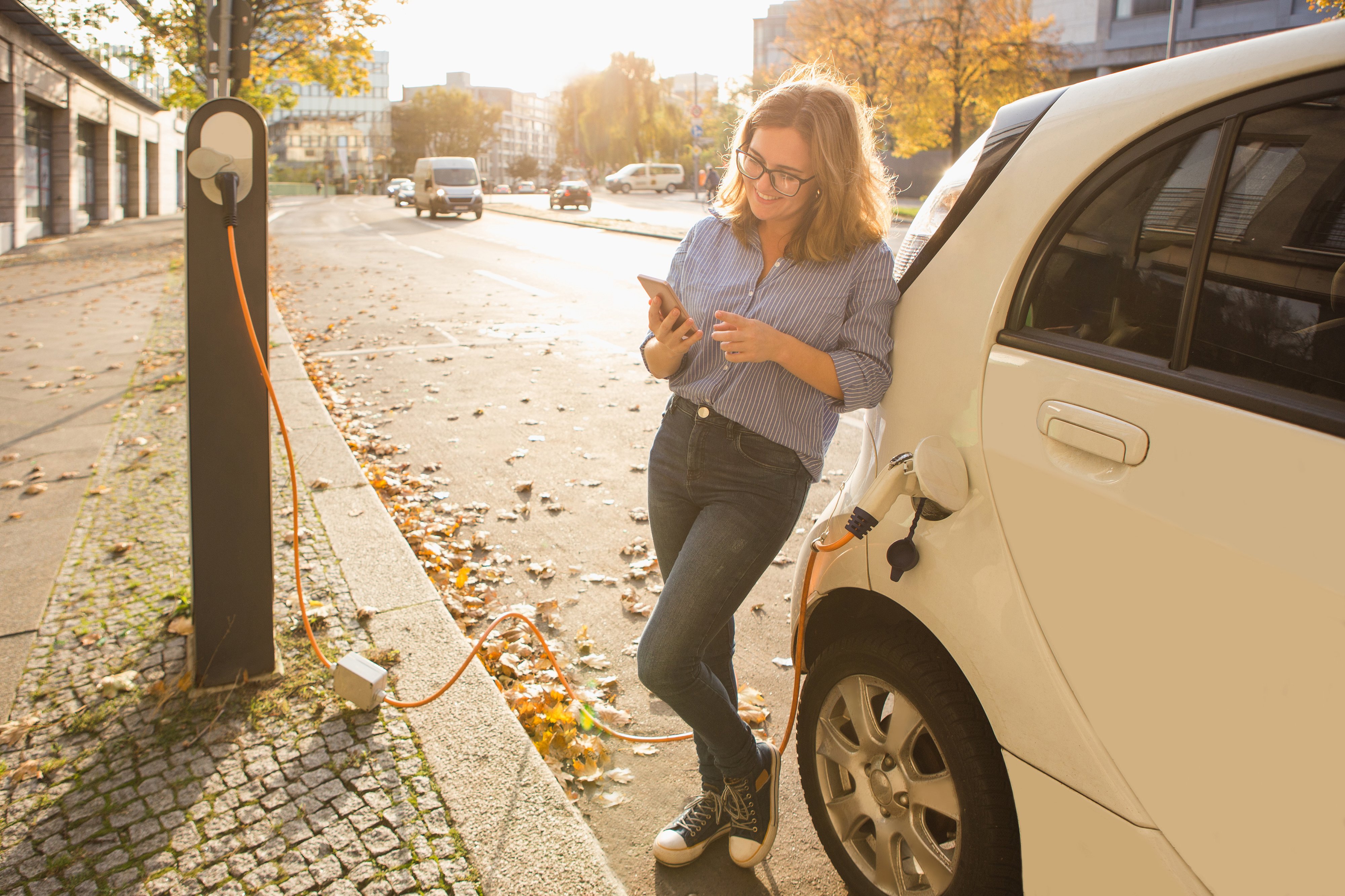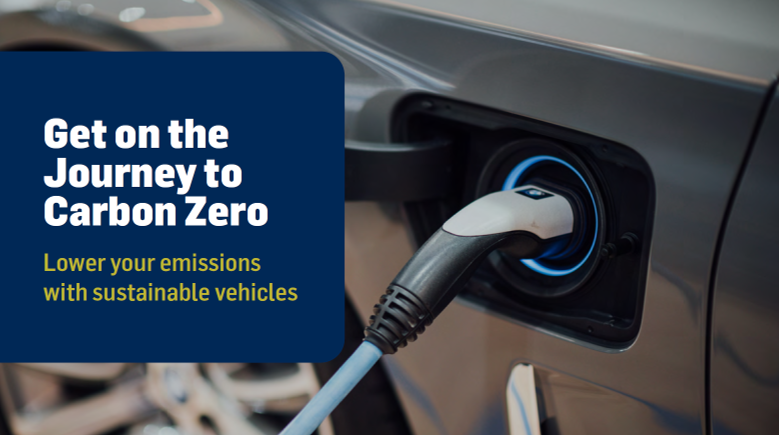Get on the journey to a carbon zero fleet.
We help businesses lower their carbon emissions through their vehicle fleet. Our 5 step approach considers your carbon journey, fleet mission, vehicle selection, charging solutions and getting your team on board.
The journey to a zero carbon vehicle fleet is not an easy ‘replace with EV’ approach.
It requires an overarching strategy, an understanding of the fleet's purpose, vehicle selection, expertise on charging and infrastructure, as well as policy and employee engagement.
We are currently working with many of our corporate clients in transitioning all or part of their fleet to hybrid and electric vehicles.
FleetPartners has the expertise to help businesses kickstart their journey.

Get on our 5 step journey to Carbon Zero.
We help businesses lower their carbon emissions through their vehicle fleet.
-
Your Carbon Journey – your goals for your carbon footprint.
-
Fleet Mission – define the purpose of your fleet and what you need it to do.
-
Vehicle Selection – sustainable vehicles that are fit for their purpose.
-
Charging + Infrastructure – informed independent advice from experts.
-
Vehicle Policy & Employee Engagement – ensuring a smooth transition and getting the team on board with change.
Things to consider when choosing EV
Low carbon vehicles are becoming more appealing to business owners and fleet managers as make and model availability grows and charging infrastructure reach increases. This will see electric vehicle purchase prices coming down, and the benefits of cheaper running costs and lower emissions will become more compelling.
We start with our 5 step journey and ideally use your telematics data to look at vehicle usage and then recommend what drivers could drive a hybrid or EV, and what vehicles could transfer to pool vehicles.

Clean Car Discount
The NZ Government's Clean Car Discount is currently active but the programme is being updated to include fees on high emitting vehicles from 1 April 2022. The Discount scheme will give rebates for electric vehicles (EVs) and plug-in hybrid electric vehicles (PHEVs) registered new in NZ. Rebates include up to $8,625 for new vehicles and $3,450 for used vehicles. It applies only to new and used vehicles registered in NZ for the first time and with a purchase price under $80,000 (including GST and on-road costs).
FleetPartners will pass on the Clean Car Discount rebate with lower lease rates. Any fees payable under the Clean Car Discount will be automatically capitalised into the lease at the quote stage and factored into the monthly lease payment. See more information here.
"More than 90 percent of all passenger vehicles will be electric by 2040"
Business Insider
Low and zero carbon vehicles available in NZ.
There are currently three types of hybrid and electric vehicles available in New Zealand.
1. Hybrid Electric Vehicle (HEV) -A hybrid electric vehicle (HEV) is a type of hybrid vehicle that combines a conventional internal combustion engine (ICE) system with an electric propulsion system (hybrid vehicle drivetrain). The presence of the electric powertrain is primarily intended to achieve either better fuel economy than a conventional vehicle or better performance.
2. Plug-in Hybrid Electric Vehicle (PHEV) -A plug-in hybrid electric vehicle is a hybrid electric vehicle which battery can be recharged by plugging it into an external source of electric power, as well as by its on-board engine and generator. PHEVs use electric motors and motor controllers as well as an internal combustion engine.
3. Battery Electric Vehicle (BEV) -A battery electric vehicle (BEV), pure electric vehicle, only-electric vehicle or all-electric vehicle is a type of electric vehicle (EV) that uses chemical energy stored in rechargeable battery packs. BEVs use electric motors and motor controllers instead of internal combustion engines (ICEs) for propulsion. They derive all power from battery packs and thus have normally no internal combustion engine, fuel cell, or fuel tank. some BEV’s do have a petrol powered range extender which can provide further range if required through generating additional charge to the battery system.
